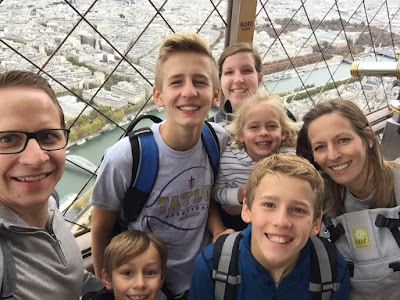How was Africa?
I usually say “good”. Here is what I mean.
It’s been a challenge to switch back to a different life so quickly. There are so many things about our time away that I think are tucked in the back of our mind / stuffed down in our souls.
In addition to the joys and sorrows of the patient care there that I have already written about here, these are some of the elements that impacted me the most.
1) Taking a class in French language as a family was so eye opening in terms of how we learn differently, what each family member enjoys and despises and how we adjust to change.
2) Every place has it’s unique beauty. France is historic and idyllic. The semi-arid climate of sub Saharan Africa has a dry desert look at times and a green savannah feel depending on when you are there. Now I am surrounded by lush grass and mist over open fields in the mornings in Indiana. The Europeans have a confident and sophisticated air about them. The Africans can pull of any color combination and have unmatched brawn, smooth skin and the highest cheek bones. The Americans all seem to wear cool tennis shoes, give lots of hugs and have the most colorful and cool hair styles.

3) There was so much growth and valuable independence for our kids there. We can’t send our oldest sons to market to get groceries for us here. They can’t free-range their chickens in our subdivision. We’ll probably be more nervous here if we can’t find a kid at dinner time, but that was a common occurrence with our middle son off playing with his buddies. (We probably should have policed that a little closer - ha). There are some once in a lifetime things you just have to try - like bribing a 4 year old with a teddy bear and convincing your wife that she can climb the Eiffel tower with a baby carrier.
4) There are people out there that you have never heard of that might just end up being you closest friends who change your life when you paths cross for a common endeavor. (No pics here for security reasons).
5) Some things take a leap of faith to get started. The scariest times are some of the closest times with God. If you cry out for help after taking a leap that God has called you to, he shows up in powerful ways.
 |
| Terminal 5 - so many emotions coming and going here. |
If anyone reading this ever wants to hear more about our trip, get involved in the work there or something similar, let's grab lunch or send me a message or an email. Thanks for following along.























